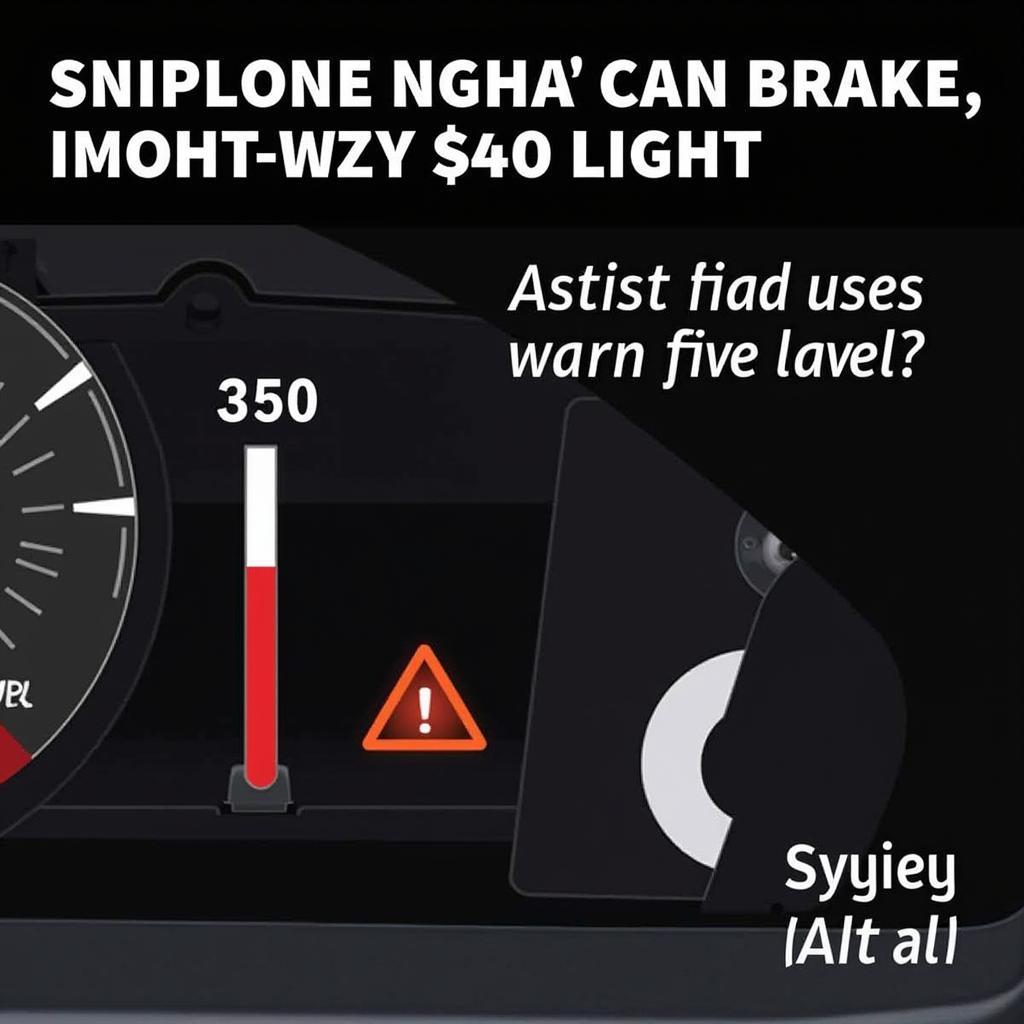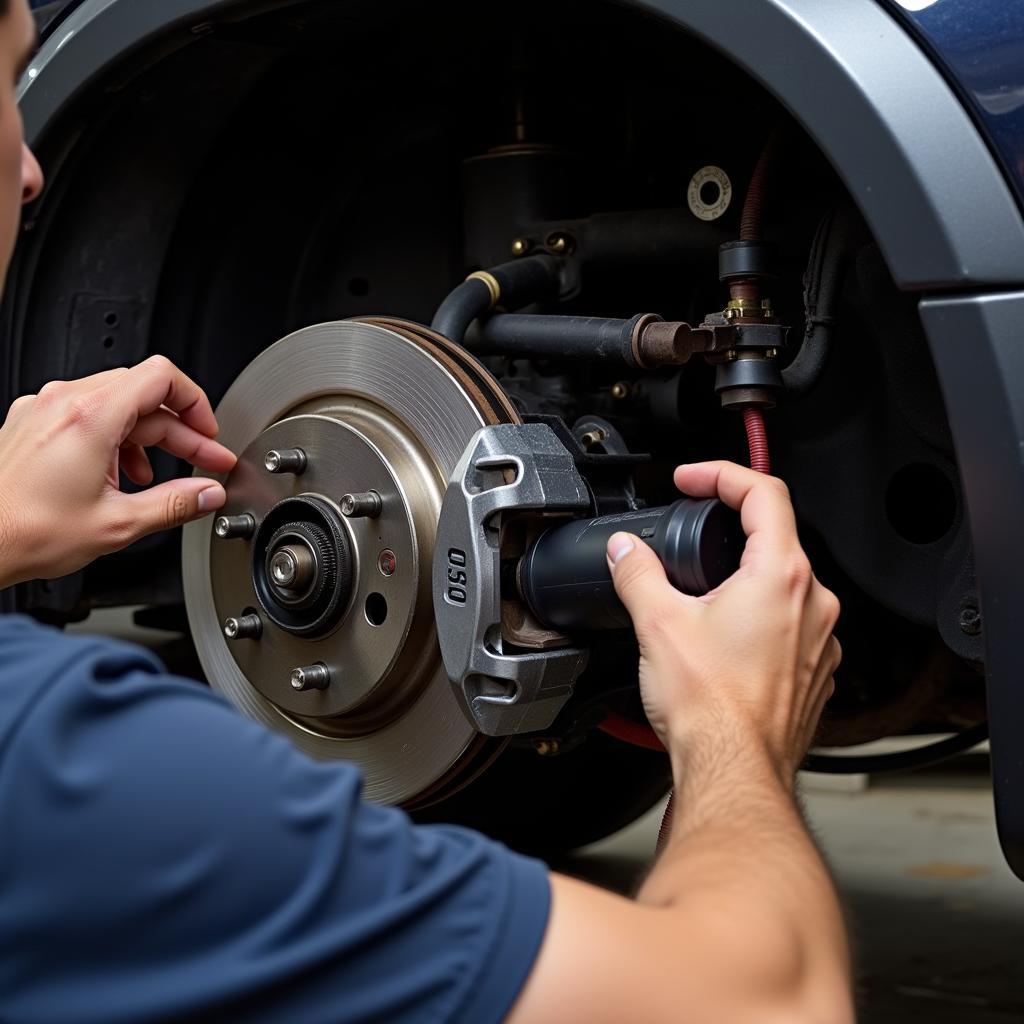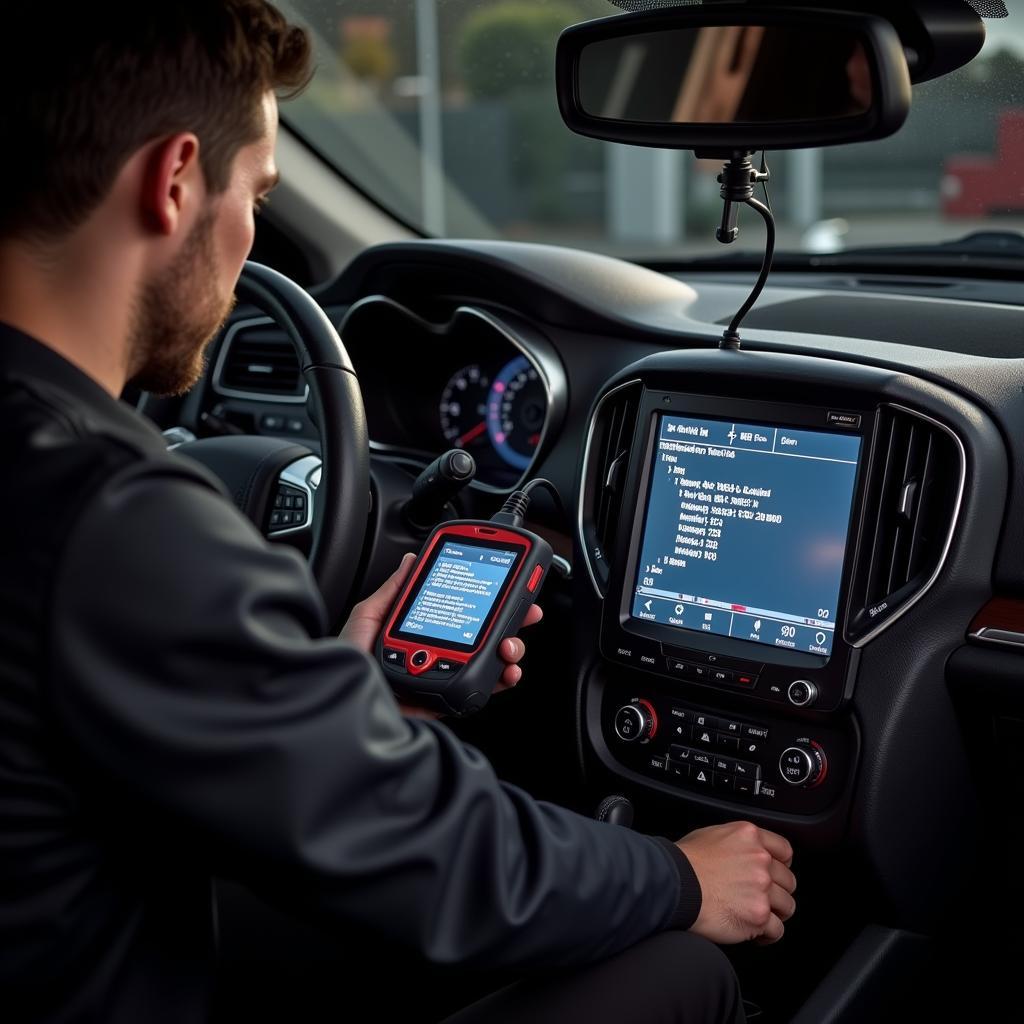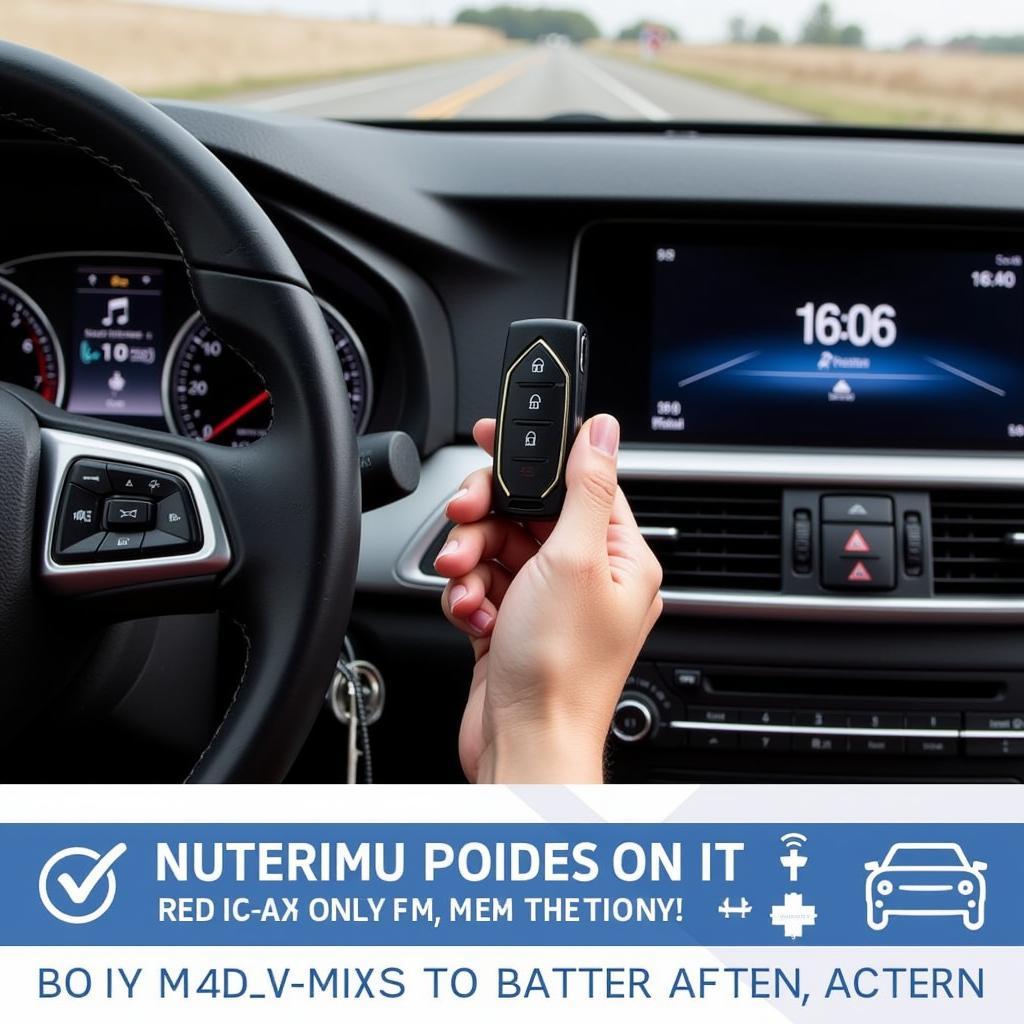If your brake warning light comes on intermittently, it can be a frustrating and concerning experience. This article aims to provide you with a comprehensive understanding of the issue, potential causes, and solutions, helping you address this problem effectively. We’ll explore everything from simple checks to more complex diagnostic procedures. Let’s delve into the details and get your brake warning light under control. Learn more about when a brake warning light comes on in this helpful article.
A flashing or intermittent brake warning light is not something to ignore. It signals a potential problem with your braking system, which is crucial for your safety and the safety of others on the road. While it might be tempting to dismiss it as a minor glitch, understanding the underlying causes and addressing them promptly is vital.
If you are experiencing issues with your brake warning light, you may find this article on the 1999 Jeep Cherokee brake warning light helpful.
Common Causes of an Intermittent Brake Warning Light
There are several reasons why your brake warning light might be coming on intermittently. Some of the most common culprits include:
-
Low Brake Fluid: This is often the most straightforward cause. A leak in the brake lines or worn brake pads can cause the fluid level to drop, triggering the warning light.
-
Faulty Brake Fluid Level Sensor: Sometimes, the sensor itself can malfunction, sending incorrect signals even if the brake fluid level is adequate.
-
Worn Brake Pads: As brake pads wear down, the brake fluid level drops. If the pads are nearing the end of their lifespan, the warning light may flicker on and off.
-
Parking Brake Issues: If your parking brake isn’t fully disengaged, the warning light might illuminate. This is often accompanied by a noticeable drag on the vehicle’s performance.
-
ABS Problems: Issues with the Anti-lock Braking System (ABS) can also trigger the brake warning light. This can range from a faulty sensor to a problem with the ABS module itself. Check out more information on antilock brake warning lights.
 Low Brake Fluid Level Triggering Intermittent Brake Light
Low Brake Fluid Level Triggering Intermittent Brake Light
Diagnosing the Problem
Diagnosing an intermittent brake warning light requires a systematic approach. Start with the simplest checks and proceed to more complex ones if necessary:
-
Check Brake Fluid Level: Open the hood and locate the brake fluid reservoir. Check the fluid level against the minimum and maximum markings. If it’s low, top it off with the correct brake fluid type recommended by your vehicle’s manufacturer.
-
Inspect Brake Lines: Carefully examine the brake lines for any signs of leaks or damage. Look for wet spots or drips around the lines and connections.
-
Check Parking Brake: Ensure the parking brake is fully released. Try driving a short distance to see if the warning light goes off.
-
Test Brake Pedal: Pay attention to the feel of the brake pedal. Does it feel spongy or soft? This could indicate air in the brake lines or a more serious issue.
You might find information about brake lights in a 2016 Subaru helpful in understanding your issue.
 Mechanic Inspecting Brake Lines for Leaks and Damage
Mechanic Inspecting Brake Lines for Leaks and Damage
When to Seek Professional Help
If you’ve performed the basic checks and the brake warning light persists, it’s time to consult a qualified mechanic. Issues with the ABS system or other complex components require specialized diagnostic equipment and expertise.
For information on a similar issue in a different vehicle, you can refer to this article on a 1989 Jaguar with no brake pressure warning lights.
Advanced Diagnostic Techniques
Modern vehicles utilize sophisticated diagnostic systems. A professional mechanic can use a scan tool to retrieve diagnostic trouble codes (DTCs) related to the braking system. These codes provide valuable insights into the specific fault and help pinpoint the problem area.
 Mechanic Using a Diagnostic Scan Tool on a Car
Mechanic Using a Diagnostic Scan Tool on a Car
Preventing Future Issues
Regular maintenance is key to preventing brake warning light issues. This includes:
-
Routine Brake Inspections: Have your brakes inspected at least once a year or as recommended by your vehicle’s manufacturer.
-
Timely Brake Pad Replacement: Replace brake pads before they wear down excessively.
-
Brake Fluid Flushes: Flush your brake fluid according to your vehicle’s maintenance schedule.
Conclusion
An intermittent brake warning light is a signal that shouldn’t be ignored. By understanding the potential causes and taking appropriate action, you can ensure the safety and reliability of your braking system. Don’t hesitate to seek professional help if the problem persists, as timely diagnosis and repair can prevent more serious issues down the road. Remember to keep your brake system maintained regularly to avoid future problems with your brake warning light.

